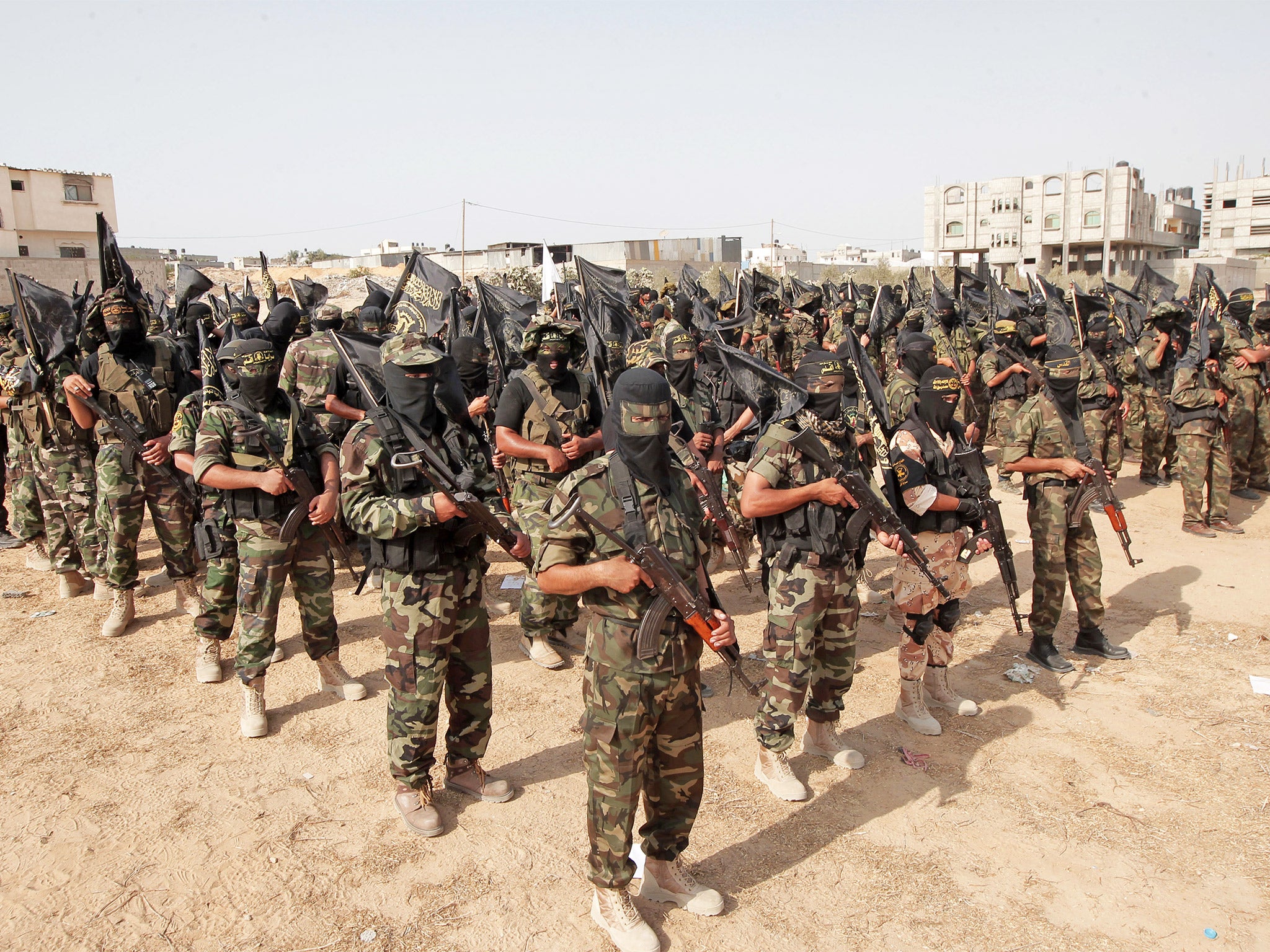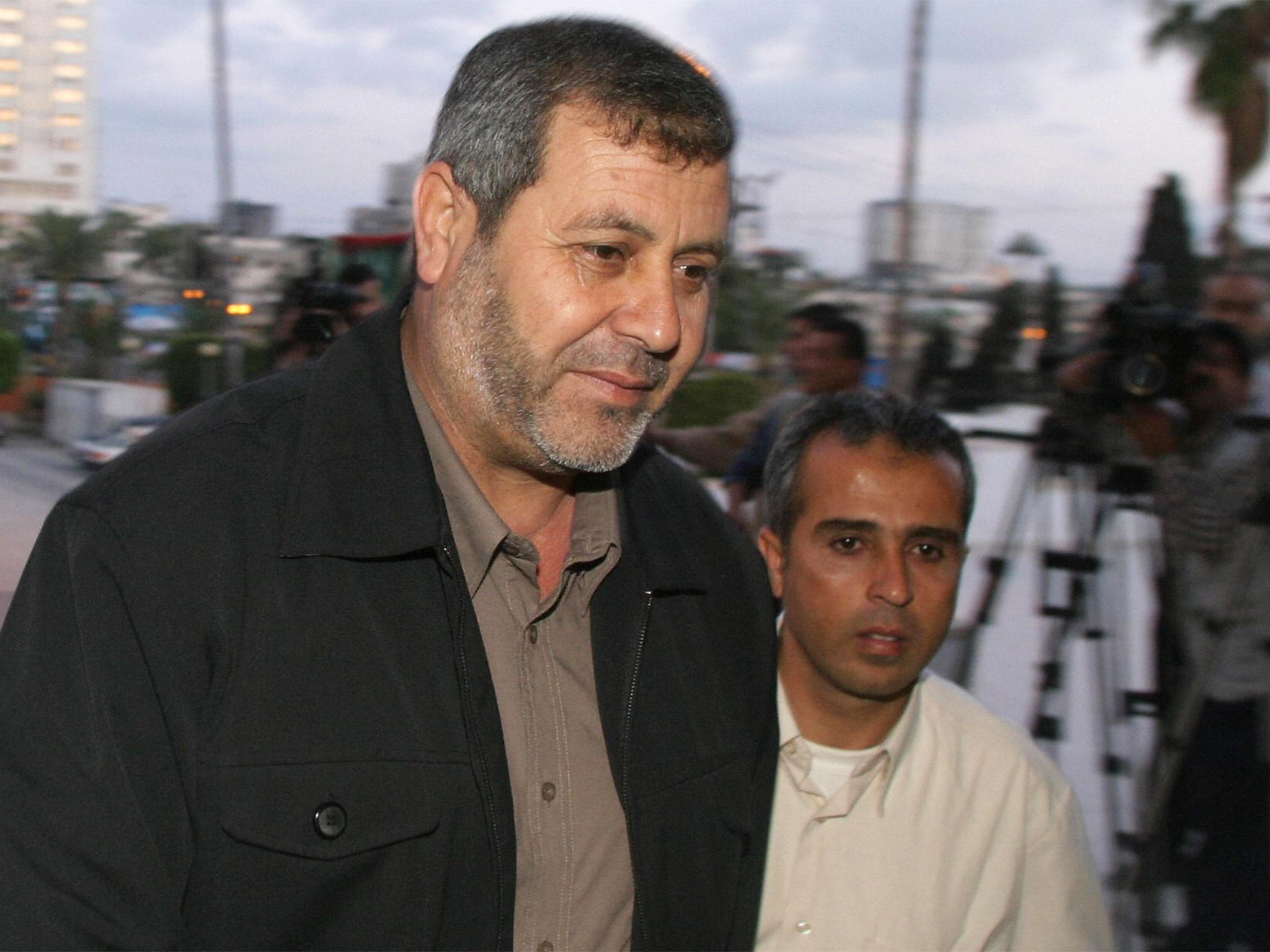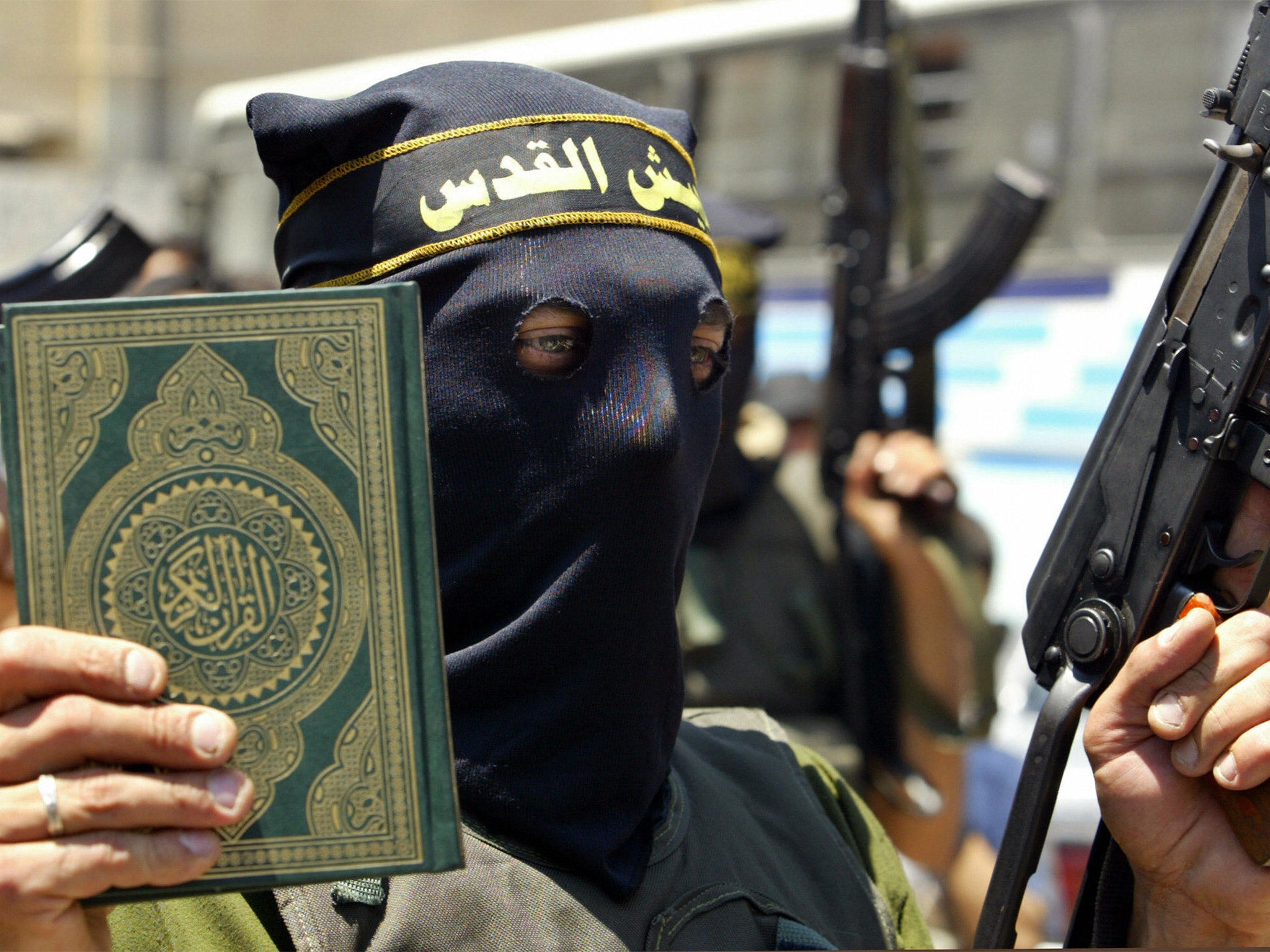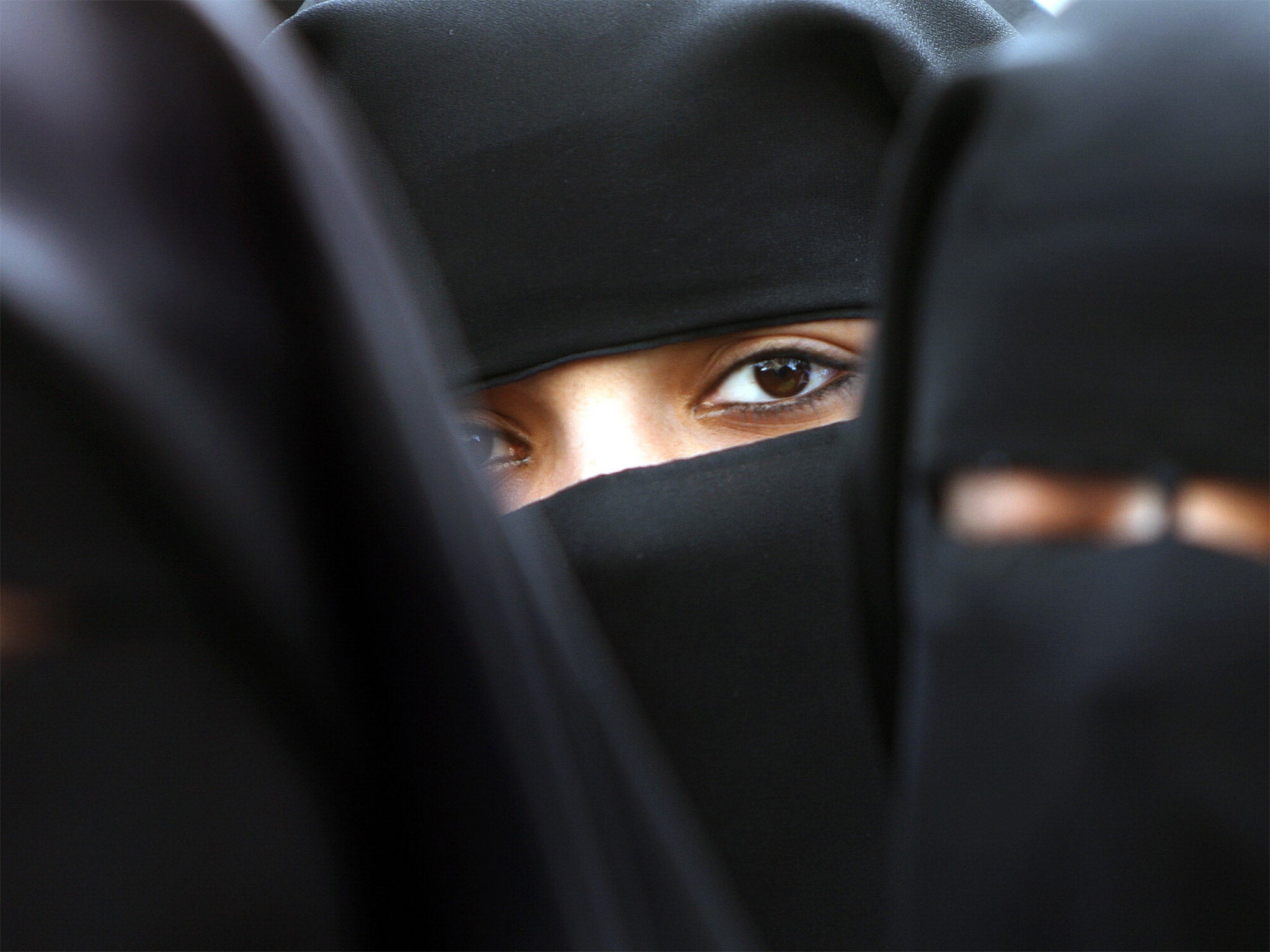'The election of Netanyahu is the best thing for the Palestinian people': An audience with Khaled al-Batsh the leader of Islamic Jihad
Khaled al-Batsh, Islamic Jihad’s political chief, disdains the prospect of a political solution to the world's most intractable territorial dispute. So what about the rumours that Gaza militants are rearming?

Your support helps us to tell the story
From reproductive rights to climate change to Big Tech, The Independent is on the ground when the story is developing. Whether it's investigating the financials of Elon Musk's pro-Trump PAC or producing our latest documentary, 'The A Word', which shines a light on the American women fighting for reproductive rights, we know how important it is to parse out the facts from the messaging.
At such a critical moment in US history, we need reporters on the ground. Your donation allows us to keep sending journalists to speak to both sides of the story.
The Independent is trusted by Americans across the entire political spectrum. And unlike many other quality news outlets, we choose not to lock Americans out of our reporting and analysis with paywalls. We believe quality journalism should be available to everyone, paid for by those who can afford it.
Your support makes all the difference.The four-storey sand-coloured building where the political chief of Islamic Jihad in Gaza has his headquarters is surrounded by evidence of the war and siege the territory has endured.
Homes and businesses have been shattered by Israeli air strikes, some collapsing into the street, while many of those still standing are pockmarked by shrapnel, their shattered windows patched up with plastic sheets.
Yet, sitting in his sparsely furnished office, Khaled al-Batsh declared yesterday: “The election of Benjamin Netanyahu has been the best outcome for the Palestinian people. It means there is no confusion. We are seeing the true face of Israel, a face that does not want peace, and we know at least what to expect.”
The alternative election outcome, a victory for the centre-left coalition of Isaac Herzog and Tzipi Livni – which would have suited the Obama administration and many European governments – would have sent false signals, said Mr Batsh in an interview with The Independent. “They would have made noises about agreements and kissed Abu Mazen [the Palestinian President also known as Mahmoud Abbas], yet they are no different from Netanyahu. Their Labour Party has started many wars.”

Mr Batsh is a key ideologue for the Iranian-backed organisation that has its main office in Damascus, reaches across the Middle East and is considered a terrorist group by the US and European governments. Islamic Jihad refuses to recognise Israel and its core aim is the creation of a Palestine stretching throughout the territory that was partitioned to form Israel in 1948.
To achieve this, it proclaims, requires a ceaseless struggle against the forces of Zionist occupation. In that respect, might not Mr Netanyahu’s campaign pledge against the creation of a Palestinian state – that would mean sharing the land between Jews and Arabs – actually suit Islamic Jihad?
Mr Batsh, a burly, bearded and jovial man, as he fussed over providing tea, gave a weary sigh. “All the things said during the elections in Israel are just advertising, so difficult to take seriously,” he stressed. “But they are advertisements painted in Palestinian blood, and afterwards wars are created, people killed, by Israeli leaders, to suit domestic politics – we have seen this over the years. As for peace, we have heard so much about that, just in the last quarter century. A generation of Palestinians has grown up in that time without hope.”
During the Israeli election the right wing, including the Prime Minister’s Likud party, repeatedly claimed that among the main sources of danger to Israel were Hamas and Islamic Jihad in Gaza. The groups were, it was claimed, rearming, replenishing stocks of missiles and rebuilding the tunnels which had been used to smuggle in arms and carry out attacks. Mr Batsh does not deny it. “I am not in charge of our military wing so I would not know about these things. I have read the reports, just like you,” he said.
“But as we are facing occupation, facing constant threat from an aggressive power armed with the most modern weapons, the resistance has a right to defend an isolated people. International law gives us the right to protect ourselves, even if with unsophisticated weapons. Just look at the balance in the military between the two sides.”
For all its fiery expressions of principle, Islamic Jihad is also pragmatic, as is its political supremo. The movement took part in the talks in Cairo which ended last summer’s war and Mr Batsh played an important role in achieving that outcome with an impressive show, according to those present, of diplomatic finesse. Since then his movement’s approval rating in Gaza has also risen among a population, battered by violence and poverty that also has to endure a feud between the two major Palestinian political factions, Hamas and Fatah.

Mr Batsh said, “I stayed here for 34 days of bombing before going to Cairo. I was worried like any other Palestinian. The Israelis were carrying out assassinations, and they could have targeted the delegation even though we were trying to get a ceasefire. There is no red line for them.”
He continued: “The ceasefire will hold unless the Israelis attack and break it. We will not be the ones to violate the ceasefire. But the Israelis have continued with the siege. We had hoped that the international community would pressurise Israel to abide by the conditions. Britain has a particular responsibility because of its role in the history of this place, but it has not really done anything to solve the problem. Other Europeans, like the Swiss and the Norwegians, are trying to do much more.”
The role of a former British Prime Minister, Tony Blair, the special envoy of the “Quartet” – the UN, US, EU and Russia – and sent to promote peace in the conflict and development in the Palestinian community, has left him puzzled. “We could not work out whether he was a statesman or a businessman. Maybe a bit of both, but mostly a businessman, I think.”
On the matter of the internal strife between Hamas and Fatah, Mr Batsh took a statesmanlike stance. “They are taking different approaches, but if we antagonise each other we become weak. Even if there is no political unity, there should be a clear agreement between the parties. Otherwise it just helps the other side,” he said.

For now, Mr Batsh’s forecast is gloomy. “Obama wants to leave a fingerprint, bring peace here. Of course others have tried before, like Carter, Bush. Obama will try, maybe he is sincere, but he will not succeed. The Israelis will not let it happen; they think they have time on their side. He will find this is a very difficult region in which to leave a legacy.”
Islamic Jihad at the heart of conflict
Islamic Jihad, al-Islami al-Filastin, was founded in Gaza in 1981 by a group of radical activists who had split from the Muslim Brotherhood.
Its stated aim was the establishment of a Palestinian state before the creation of the state of Israel. That remains its position today.
Following the movement taking up military action against Israel, the Israeli government expelled its leadership to Lebanon where it built close relations with Hezbollah and its backers, Iran
After the 1993 Oslo Accord, Islamic Jihad formed an alliance with the fellow rejectionists of Hamas, against Fatah. The movement has a presence in the West Bank, but Gaza became the centre of operations where its military arm, the al-Quds Brigade, has built up a formidable presence with its fighters playing a prominent role in the conflicts with Israel.
Islamic Jihad has been designated as a terrorist group by the US, the EU, the UK, Japan, Canada and Australia as well as Israel. However, behind-the-scenes meetings have taken place between some European diplomats and the movement’s officials.
It took part in the talks in Cairo with Israel which led to the ceasefire ending last summer’s war that devastated much of Gaza.
Join our commenting forum
Join thought-provoking conversations, follow other Independent readers and see their replies
Comments